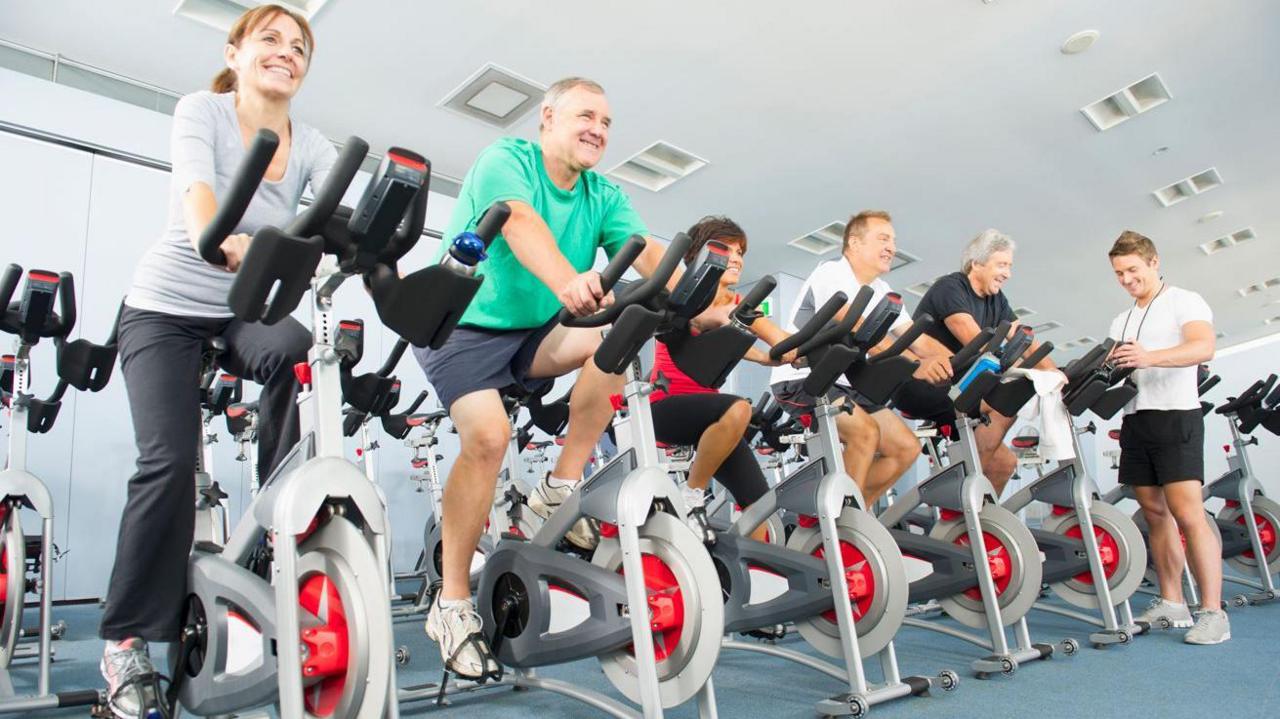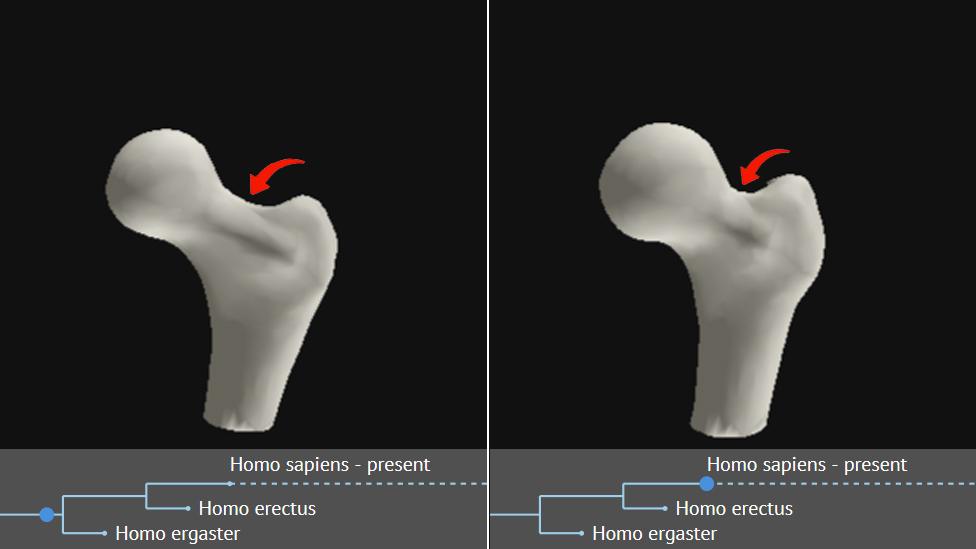Spin class 'more beneficial than physio for some'

The benefits of regular spin classes were identified in the study (stock image)
- Published
Weekly group spin classes could be more beneficial than physiotherapy for people with a common hip problem, a study suggests.
Researchers from Bournemouth University and University Hospitals Dorset (UHD) said the approach could also be more cost-effective for the NHS and help tackle waiting times for physiotherapy.
Hip osteoarthritis happens when the cartilage in the hip breaks down, causing pain and stiffness.
It it estimated that the condition affects about 3.2 million people in the UK.
For the trial, experts from Bournemouth University and UHD compared usual physiotherapy care with an eight-week exercise and education programme known as Chain (cycling against hip pain).
The study, published in The Lancet Rheumatology, included 211 people, with roughly half assigned to each group.
The Chain group attended weekly education sessions from a physiotherapist, lasting about 30 minutes, followed by a 30-minute session of static cycling led by a gym instructor.
The effects of treatment on patients were measured by the Hip Disability and Osteoarthritis Outcome Score (HOOS) activities of daily living (ADL) subscale, which assesses how hip problems affect various daily activities.
'I can walk further'
The study found those who completed the cycling classes had a "statistically significant improvement in patient-reported function after treatment".
Researchers said the method "showed superior outcomes compared with usual physiotherapy care, and the feasibility of delivering a low-cost, community-based intervention within the NHS was shown".
However, they stress the "longer-term benefits and broader generalisability warrant further investigation".
Among the Chain participants was Judy, who said: "I've got osteoarthritis, but fortunately in the very early stages, so I'm at the other end of the scale and I'm going for as much prevention as I can.
"The twinges that I get, I find have lessened since I've been doing the programme."
Another, Steve, said: "I started having hip problems a couple of years ago and through physio I was referred to a doctor, the doctor onto this programme and I've being doing it about seven weeks.
"Provided I keep doing my daily stretches, and these exercises, I can walk further and I'm gradually building back up to the walking distance I did before."
'Ageing population'
Tom Wainwright, a professor of orthopaedics at Bournemouth University and a physiotherapist at UHD, said: "For the time it takes to treat one patient using standard physiotherapy, we can treat multiple patients in a group session and provide them with better outcomes.
"This has proved to be more cost-effective than standard treatment and so we hope this will contribute to reducing NHS waiting times for physiotherapy treatment in the future."
Prof Rob Middleton, of Bournemouth University and an orthopaedic surgeon at UHD, said: "Hip replacements cost the NHS over £6,000 per patient, so avoiding surgery for hip problems reduces the burden on the NHS, saves money, and provides better outcomes for patients.
"Now with this new study we can also see the potential for static cycling to save further money for the NHS by bringing down waiting lists for physiotherapy."
Dr Peter Wilson, chief medical officer at UHD, said: "We are an ageing population and increasingly we are seeing more patients with osteoarthritis that need either surgery or physiotherapy.
"Finding alternative ways to treat these patients could help reduce waiting times and the financial demand on NHS services."
The Chain intervention was first launched in 2013 and patients who wish to take part are referred to UHD from their GP.
To bolster access on a national level, experts from Bournemouth University had developed a virtual course on their education app, allowing people to follow the programme from their home or local gym.
Additional reporting by PA Media
Get in touch
Do you have a story BBC Dorset should cover?
You can follow BBC Dorset on Facebook, external, X (Twitter), external, or Instagram, external.
Related topics
More like this
- Published3 November 2019

- Published26 January 2023

- Published27 December 2016
